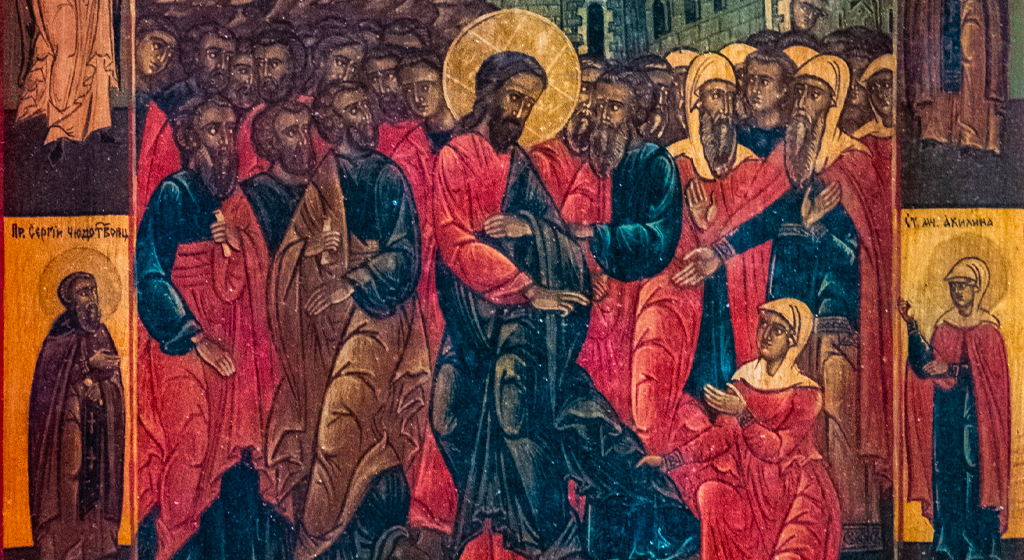Memory of the Poor
Reading of the Word of God
Alleluia, alleluia, alleluia
This is the Gospel of the poor,
liberation for the imprisoned,
sight for the blind,
freedom for the oppressed.
Alleluia, alleluia, alleluia
2 Corinthians 1,18-22
As surely as God is trustworthy, what we say to you is not both Yes and No. The Son of God, Jesus Christ, who was proclaimed to you by us, that is, by me and by Silvanus and Timothy, was never Yes-and-No; his nature is all Yes. For in him is found the Yes to all God's promises and therefore it is 'through him' that we answer 'Amen' to give praise to God. It is God who gives us, with you, a sure place in Christ and has both anointed us and marked us with his seal, giving us as pledge the Spirit in our hearts.
Alleluia, alleluia, alleluia
The Son of Man came to serve,
whoever wants to be great
should become servant of all.
Alleluia, alleluia, alleluia
Preachers had appeared in the community of Corinth who had criticised and accused Paul, questioning his sincerity, his apostolicity and the gospel he had proclaimed. This had also happened in Galatia. Paul is forced to defend himself, even though his defence is primarily of the Gospel he preached and for which he had received confirmation from the other apostles gathered in Jerusalem. With this letter, Paul wants to reaffirm the value of his proclamation, which comes from the grace of God and not from the wisdom or strength of 'the flesh'. And this is why he can 'boast'. But it is not the boasting of vainglory about one's own, perhaps alleged, qualities. It is a temptation with which many of us are familiar. The boasting of which the apostle speaks is that of one who spends his life to proclaim the gospel; of one who can present to the Lord a community that is the fruit of his preaching. With this in mind, the apostle elsewhere says: "The one boasts, should boast in the Lord." It is this boasting that drives Paul to confirm his affection and concern for the community. He would have liked to visit it soon but was prevented from doing so and had to change his plans. It is therefore not a matter of fickleness: "As surely as God is faithful, our word to you has not been 'Yes and No.'" (v. 18). His missed visit is therefore not a sign of disinterest or fear in the face of those who accused him. With these words Paul reaffirms the common call addressed by Christ to him and to a community, to which he now feels united by the same anointing and the common seal of the Holy Spirit.
